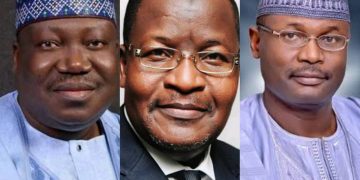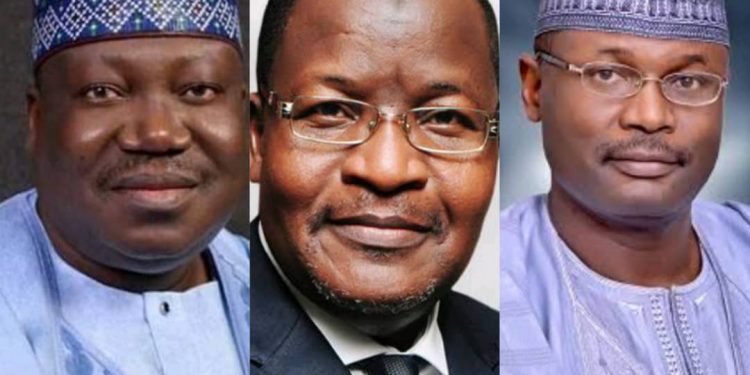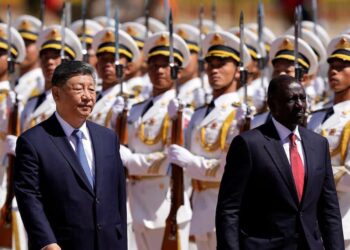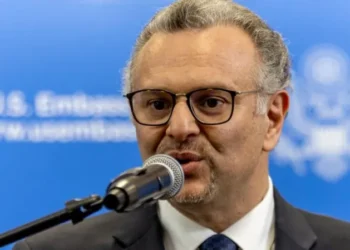By Emmanuel Nduka
The Nigerian Communications Commission (NCC) appeared to have contradicted itself while answering questions from Lawmakers in Nigeria’s House of Representatives on Friday, reeling out none-corresponding statistics on the adoption of Electronic Transmission of Results during elections.
Executive Commissioner, Technical Services, NCC, Maska Ubale who stood before the Green Chambers in what seemed like a connivance to rid the Independent National Electoral Commission (INEC) of independence and powers in determining the outcome of elections, tried hard to explain that “only 50% of our polling units have network”.
According to the NCC, barely 50% of the nation’s 119,000 polling units have network coverage, adding that NigComsat is not under the purview of the NCC.
Ubale said the 50% comprised of both 2G and 3G network, adding that 4G can work only where there is 3G network.
NCC’s EARLIER STATISTICS
In November 2020, the NCC in a Draft Consultation Document for the Deployment of 5G Mobile Technology in Nigeria, stated that Fourth-Generation (4G) mobile network coverage in Nigeria currently hovers around 37%.
The NCC disclosed further in the document that as at December 2019, coverage data showed that most rural areas only have access to 89.8% 2G networks coverage, while 3G has coverage of over 74% ( in the same areas as the polling units). This was in sharp contrast to its submission on Friday in the House of Representatives that only 50% area had good network coverage.
Again, part of the requirements in terms of quality of network for deployment of Electronic Transmission of Election Results according to the Electoral Act and INEC, is at least a 3G capacity.
The NCC under the leadership of its Executive Vice Chairman, Prof. Umar Garba Danbatta, was rather guilty of dancing to the rhythm of the ruling majority, rather than being professional. This also speaks of the credibility of the Commission which is under the purview of the Ministry of Communications and Digital Economy, under the leadership of Ali Isa Pantami, which has also been enmeshed in several controversies.
Further findings by The Guardian last year, showed that as at beginning of 2020, MTN improved its 4G coverage to 48% of the country’s population, compared to 44% the end of 2018. Also, Globacom claimed availability of its 4G LTE services across the 36 states of the federation. Globacom also said the service is also available in over 200 tertiary institutions, thus confirming it as the network with the widest LTE coverage in the country.
Another leading telecommunications operator 9mobile, as of February last year, added 10 new cities and towns across the country to its 4G network and upgraded LTE services in the existing six cities, increasing the number of cities and towns enjoying its services with mass deployment of 4G technology to 16. To boost its 4G coverage in the country, Airtel, which has close to 80 cities covered, announced in March, that it has completed the acquisition of an additional 10MHz block of spectrum, to help it boost 4G coverage in Nigeria.
Going forward, the 2019 Subscriber/Network Data Report showed that the volume of data consumed by subscribers increased from 68,154.12TB in December 2018, to 125,149.86TB as of December 2019, indicating a percentage increase of 83.62% year-on-year. With this, the NCC itself explained that the increase in data usage is directly linked to the increased Broadband penetration in Nigeria within the year.
It would be recalled that the Nigerian Senate in voting against the Electoral Act Amendment Bill, conditioned that: “The national network coverage is adjudged to be adequate and secured by Nigerian Communications Commission (NCC) and approved by the National Assembly.”
Shortly after the passage of the Bill, the Senate President Ahmad Lawan said, “There was no victor, no vanquished in this affair. Everyone did what he or she did for the full commitment and realization that what we want is one and the same thing, but the paths we have taken are different.
“We want an electronic transmission system for our electoral process, however, we want to ensure that no Nigerian is disenfranchised in this process, and time will definitely come when all part of Nigeria will have the coverage that we all need to deploy our technology to ensure electronic transmission of election results.
“This has come to settle the issue of what INEC can do and what INEC cannot. We have given INEC an electoral Act amended to enhance its performance.”
IT IS AN INSULT ON INEC’S INDEPENDENCE – JEGA
Responding to the development, a former Chairman of INEC, Prof. Attahiru Jega, feared that the lawmakers’ action would undermine the independence of INEC and the nation’s democracy in general.
“This is a senseless if not crazy amendment. It would undermine the independence of INEC. How can you make the decision of INEC subject to confirmation, concurrence or approval of NCC, a body under the presidency? And what has the National Assembly, a legislative body got to do with an executive decision of INEC?” he said.



































